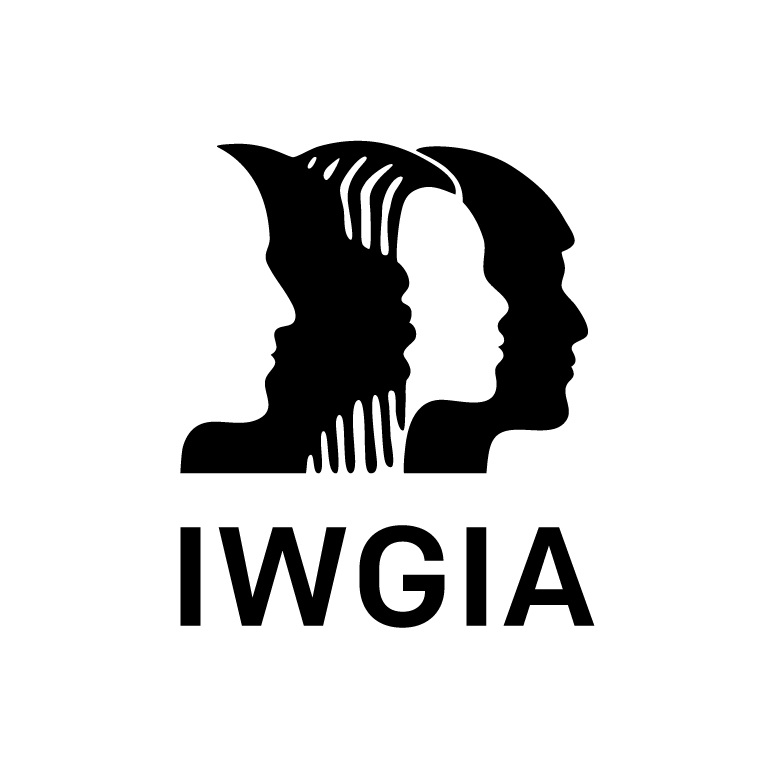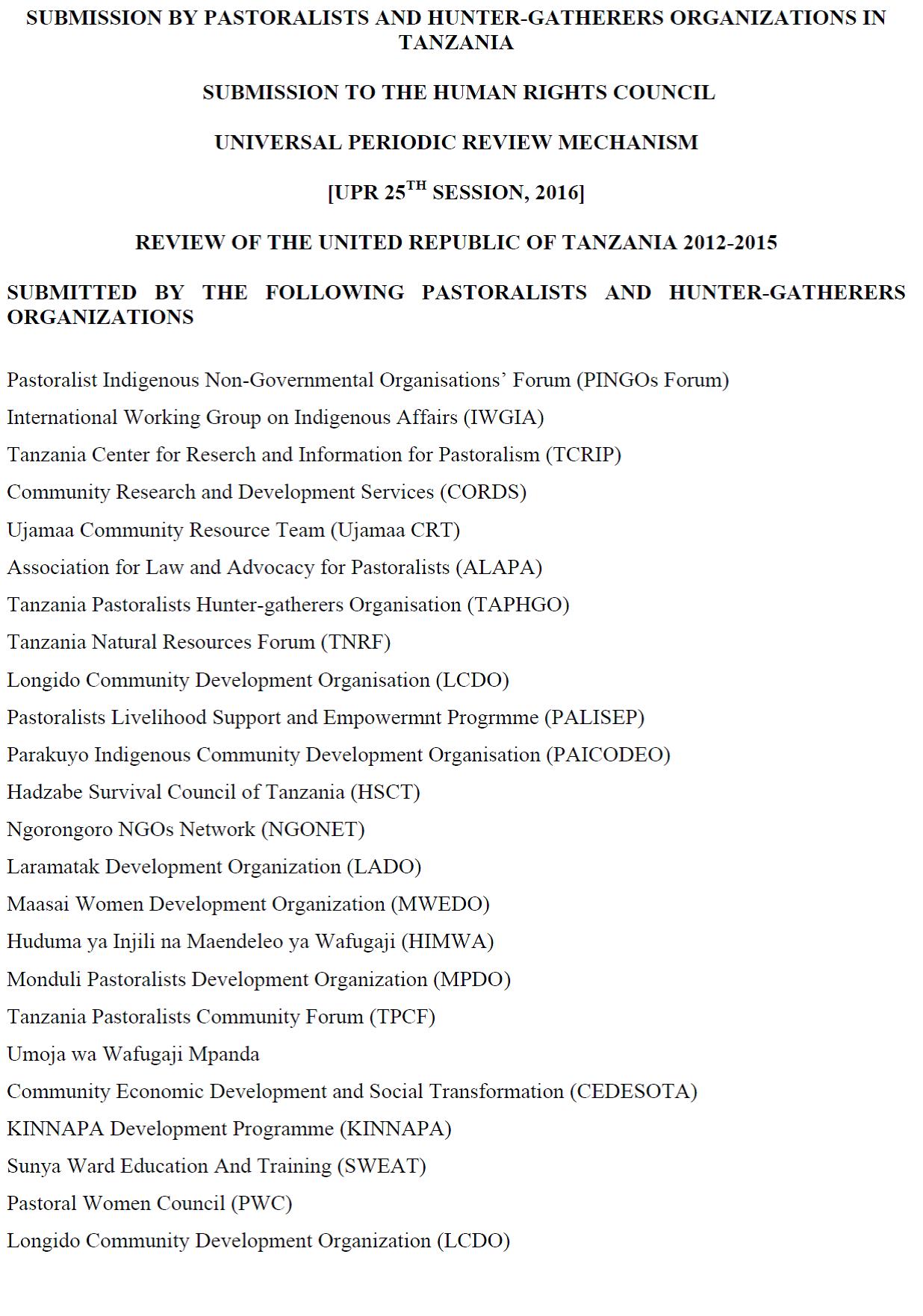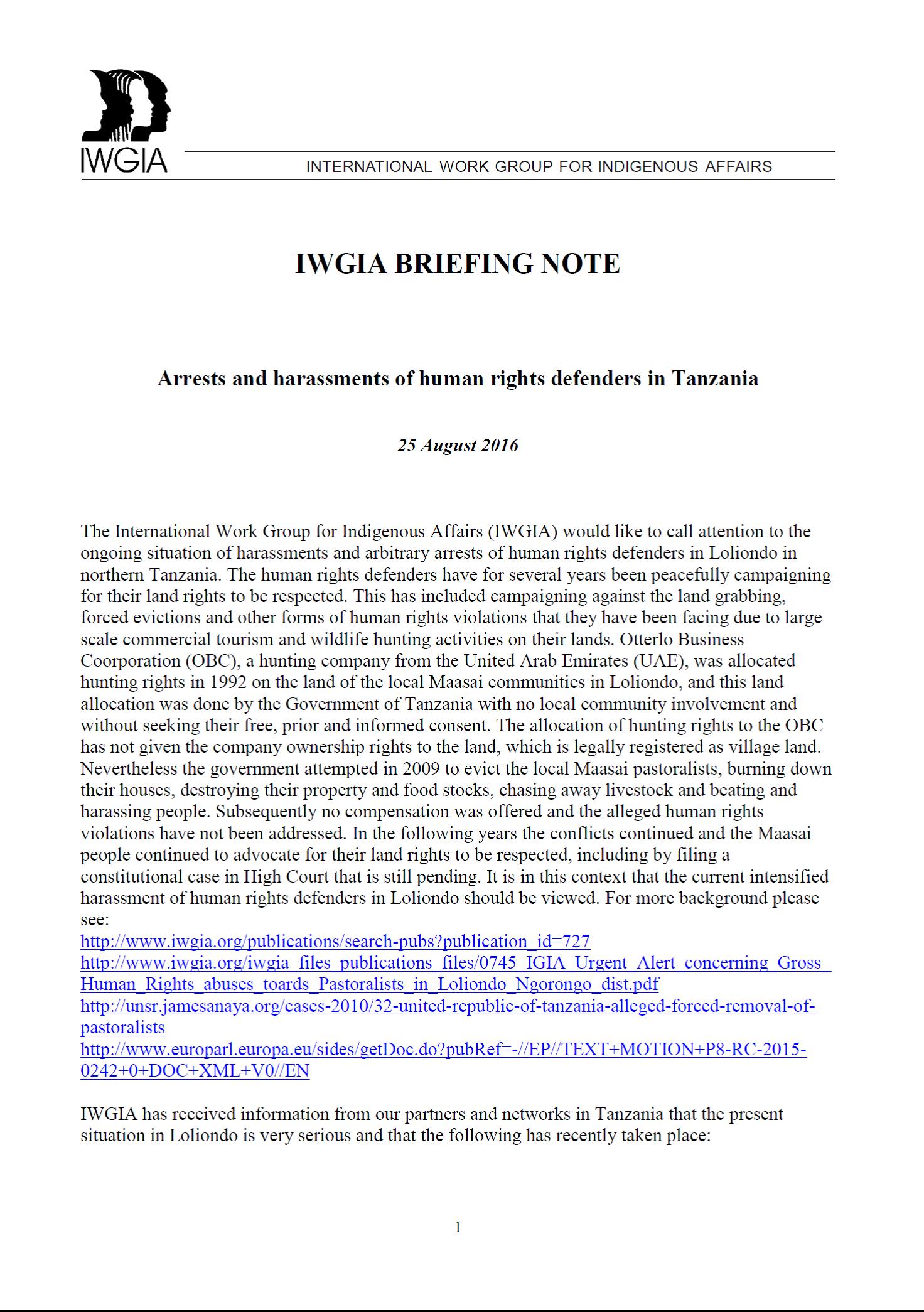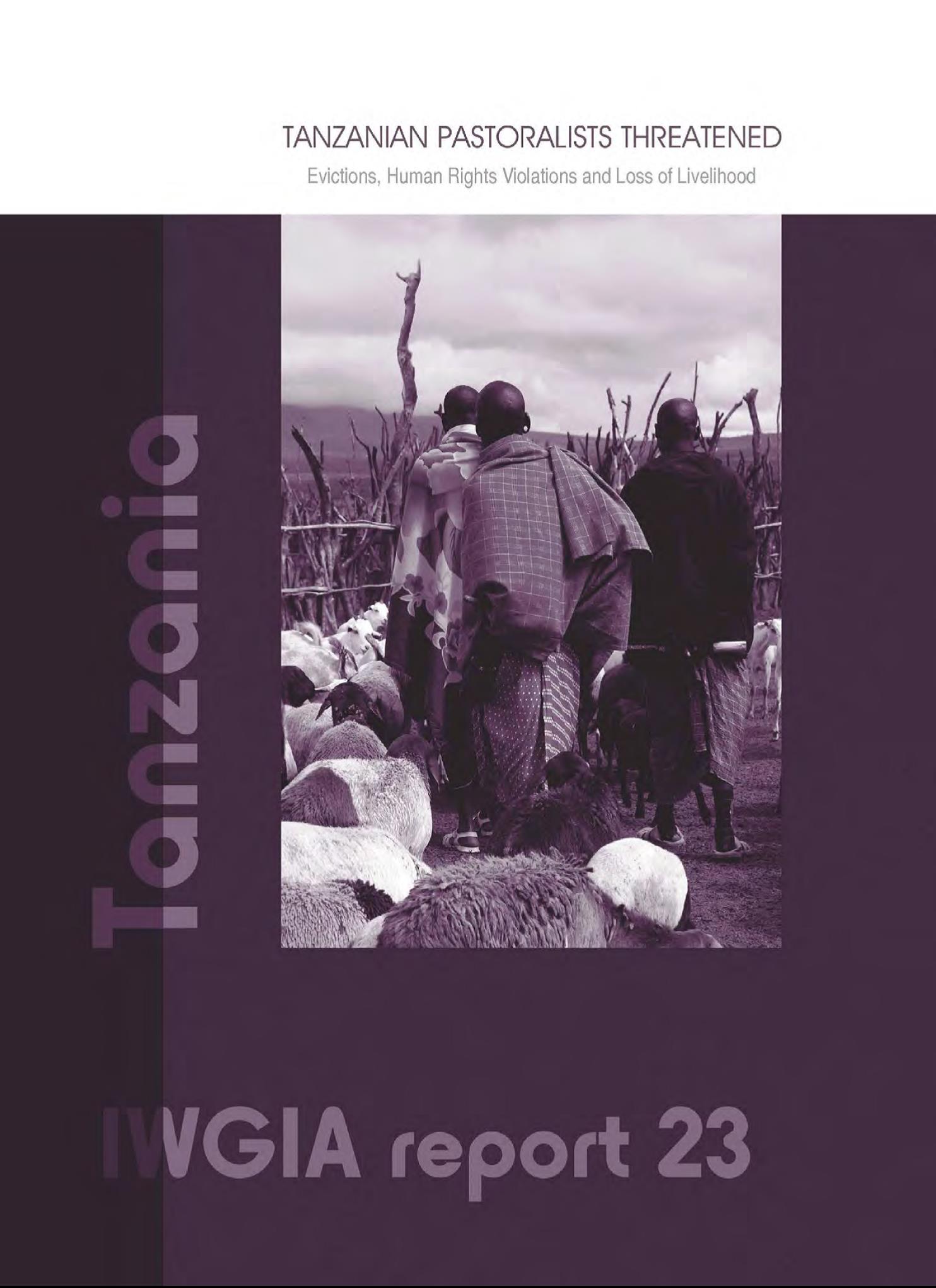Focal point
Location
IWGIA is a non-governmental human rights organisation promoting and defending Indigenous Peoples’ collective and individual rights.
We have supported our partners in this fight for more than 50 years.
We work through a global network of Indigenous Peoples’ organisations and international human rights bodies.
We promote recognition, respect and implementation of Indigenous Peoples’ rights, including the right to self-determination by virtue of which they can freely determine their political status and freely pursue their economic, social and cultural development.
Visit our website for more information and to access all our publications, including our flagship annual book The Indigenous World, a yearly overview of the state of the rights of Indigenous Peoples across individual countries and through various international mechanisms and processes.
Resources
Displaying 11 - 15 of 59Submission by Pastoralists and Hunter-Gatherers Organizations in Tanzania
This is a stakeholder submission prepared by a coalition of 24 pastoralists and huntergatherers’ Civil Society Organizations (CSOs), forums, networks and groups. The stakeholders submission is a compilation of primary and secondary sources of information, evidence and facts collected through consultative meetings and interviews with civil society organizations, public officials and community members, experts on pastoralism as well as members of the academia.
Arrests and harassments of human rights defenders in Tanzania
This briefing note call attention to the ongoing situation of harassments and arbitrary arrests of human rights defenders in Loliondo in northern Tanzania.It offers an account of the recent events taking place in the area and background information.
IWGIA believes that these developments are a cause of great concern. The detentions, harassment and trumped up charges undermine civil society and other stakeholders, limiting their options to carry out human rights work in Tanzania.
Indigenous Navigator
The Indigenous Navigator is a framework and set of tools for and by indigenous peoples to systematically monitor the level of recognition and implementation of their rights. By using the Indigenous Navigator, indigenous organisations and communities, duty bearers, NGOs and journalists can access free tools and resources based on community-generated data.
Tanzania Pastoralists threatened: eviction, human rights violations and loss of livelihood
The report explores the evictions of pastoralists and other conflicts over pastoralists’ land in Tanzania, with focus on the past decade.
Although most of these evictions and land based conflicts have been documented, the associated human and legal rights violations have increasingly lead to concern amongst civil society. A study was therefore commissioned to collate the available information as well as to visit affected pastoralist communities to assess the current situation faced by pastoralists in the country.
Tanzania Pastoralists threatened: eviction, human rights violations and loss of livelihood
The report explores the evictions of pastoralists and other conflicts over pastoralists’ land in Tanzania, with focus on the past decade.
Although most of these evictions and land based conflicts have been documented, the associated human and legal rights violations have increasingly lead to concern amongst civil society. A study was therefore commissioned to collate the available information as well as to visit affected pastoralist communities to assess the current situation faced by pastoralists in the country.






